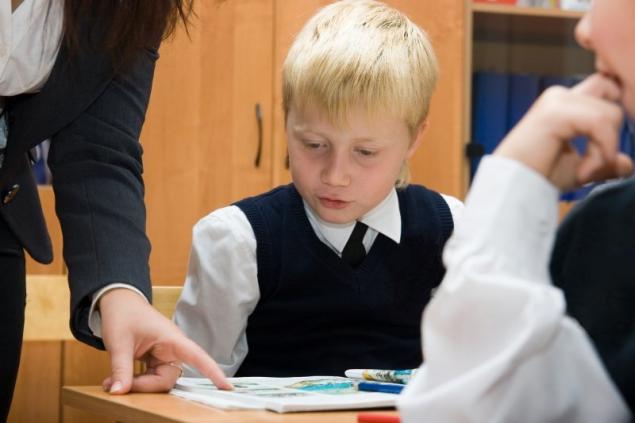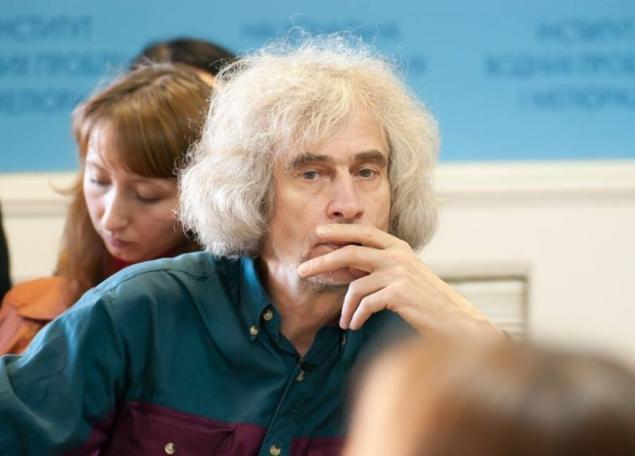156
How to improve a child’s performance in school
Why do some children enjoy studying at some fives, while others graze at the back? And if the current system of school education works correctly, then why do students and Cs often achieve greater heights in life than excellent students?
Today's edition. "Site" He will talk about the problems of schooling with Alexander Lobok, Ph.D., who has been working for two decades to get children out of educational depression.

Education of schoolchildrenChild achievement It comes from the word "success." Therefore, it is not about the mind, but about the speed of perception of the teacher’s tasks, about the ability to keep up with the allotted time, explains Alexander Lobok.

Facebook Facebook
“Albert Einstein did not learn well. Andrey Sakharov was known as a hardhead, he did everything slowly. Of course, this does not mean that every child who fails outside school will reach the heights of Einstein or Sakharov, but failure is often inherent in deep children.
“And imagine what would happen if such a deep child were brought to a teacher for whom academic achievement is speed. The student will begin to live in constant stress. Worst of all, if the parents begin to be nervous, because then the child will read their emotions, convinced of his own inferiority, that he is worse than others.

“It is unnatural for a child not to believe in himself. Imagine that a six-month-old child lost faith in his own abilities. In that case he would live in constant fear, would be afraid to know the world, would not learn to walk. But he believes in himself and very aggressively masters the world. And that helps him progress incredibly quickly.”
“A child is always energized by the energy of a feat, and it is good to have adults around who are cheering, praising micro-success and raising the bar. If the child does not believe, then his faith in himself will disappear.”
If a two-month-old child is taken and transported to Vietnam, he will still easily learn the difficult language there and in a couple of years will be babbling in Vietnamese. But what if a two-year-old child was placed in school, distributing educational material for lessons, were forced from morning to evening to memorize words and scolded for mistakes? Then he would not have mastered either Vietnamese, Russian, or any language at all, said Alexander Lobok.

“When a child begins to say the first words, parents are really excited, they do not even think to scold for incorrect pronunciation. Therefore, mastering the language turns into a great joy for all sides of this process. Although each child has its own trajectory and its own speed of learning.”
“But when a child comes to school, he realizes that literacy is something else. It's a constant pressure that turns every mistake into a nightmare. And to get rid of the nightmare, the child begins to avoid school. Modern. school-age They cause rejection, not interest.”

“As a result, many children in school simply cannot read. Yes, they know letters, they know how to put words together, and they put it all together. But to read is to see what lies behind the text, to produce a picture in one’s own mind.”
And if the student does not know how to comprehend what he read, he cannot understand the condition of the task, cannot understand the page he read, cannot keep up with the program, which is endlessly overloaded at a time when children stumble on elementary things.
“Schools do not develop imagination, they do not teach imagination. The imagination of a child is a saving thing. If he can turn lines from books into visual images, then reading becomes a great pleasure for him, not hard labor.

And when teachers say that without phones and tablets, children would learn an order of magnitude better, I take this as a diagnosis of pedagogical failure. Indeed, the poorer the environment, the easier the task of the teacher. But when a tablet with a game becomes a competitor for the child’s attention, the task becomes more complicated.”
You have to wrestle with how to interest a child, how to be as interesting to him as a video game, or even more interesting. It's a challenge. And if you fully use the imagination of the child, then this challenge can be overcome, says Alexander Lobok.

We have already told you why the requirement to study well is the grossest mistake of parents. They also demonstrated the principles of teaching in Finnish schools. That’s where you can get a lot of interesting ideas.
What do you think of Alexander Lobok’s claims?
Today's edition. "Site" He will talk about the problems of schooling with Alexander Lobok, Ph.D., who has been working for two decades to get children out of educational depression.

Education of schoolchildrenChild achievement It comes from the word "success." Therefore, it is not about the mind, but about the speed of perception of the teacher’s tasks, about the ability to keep up with the allotted time, explains Alexander Lobok.

Facebook Facebook
“Albert Einstein did not learn well. Andrey Sakharov was known as a hardhead, he did everything slowly. Of course, this does not mean that every child who fails outside school will reach the heights of Einstein or Sakharov, but failure is often inherent in deep children.
“And imagine what would happen if such a deep child were brought to a teacher for whom academic achievement is speed. The student will begin to live in constant stress. Worst of all, if the parents begin to be nervous, because then the child will read their emotions, convinced of his own inferiority, that he is worse than others.

“It is unnatural for a child not to believe in himself. Imagine that a six-month-old child lost faith in his own abilities. In that case he would live in constant fear, would be afraid to know the world, would not learn to walk. But he believes in himself and very aggressively masters the world. And that helps him progress incredibly quickly.”
“A child is always energized by the energy of a feat, and it is good to have adults around who are cheering, praising micro-success and raising the bar. If the child does not believe, then his faith in himself will disappear.”
If a two-month-old child is taken and transported to Vietnam, he will still easily learn the difficult language there and in a couple of years will be babbling in Vietnamese. But what if a two-year-old child was placed in school, distributing educational material for lessons, were forced from morning to evening to memorize words and scolded for mistakes? Then he would not have mastered either Vietnamese, Russian, or any language at all, said Alexander Lobok.

“When a child begins to say the first words, parents are really excited, they do not even think to scold for incorrect pronunciation. Therefore, mastering the language turns into a great joy for all sides of this process. Although each child has its own trajectory and its own speed of learning.”
“But when a child comes to school, he realizes that literacy is something else. It's a constant pressure that turns every mistake into a nightmare. And to get rid of the nightmare, the child begins to avoid school. Modern. school-age They cause rejection, not interest.”

“As a result, many children in school simply cannot read. Yes, they know letters, they know how to put words together, and they put it all together. But to read is to see what lies behind the text, to produce a picture in one’s own mind.”
And if the student does not know how to comprehend what he read, he cannot understand the condition of the task, cannot understand the page he read, cannot keep up with the program, which is endlessly overloaded at a time when children stumble on elementary things.
“Schools do not develop imagination, they do not teach imagination. The imagination of a child is a saving thing. If he can turn lines from books into visual images, then reading becomes a great pleasure for him, not hard labor.

And when teachers say that without phones and tablets, children would learn an order of magnitude better, I take this as a diagnosis of pedagogical failure. Indeed, the poorer the environment, the easier the task of the teacher. But when a tablet with a game becomes a competitor for the child’s attention, the task becomes more complicated.”
You have to wrestle with how to interest a child, how to be as interesting to him as a video game, or even more interesting. It's a challenge. And if you fully use the imagination of the child, then this challenge can be overcome, says Alexander Lobok.

We have already told you why the requirement to study well is the grossest mistake of parents. They also demonstrated the principles of teaching in Finnish schools. That’s where you can get a lot of interesting ideas.
What do you think of Alexander Lobok’s claims?
























